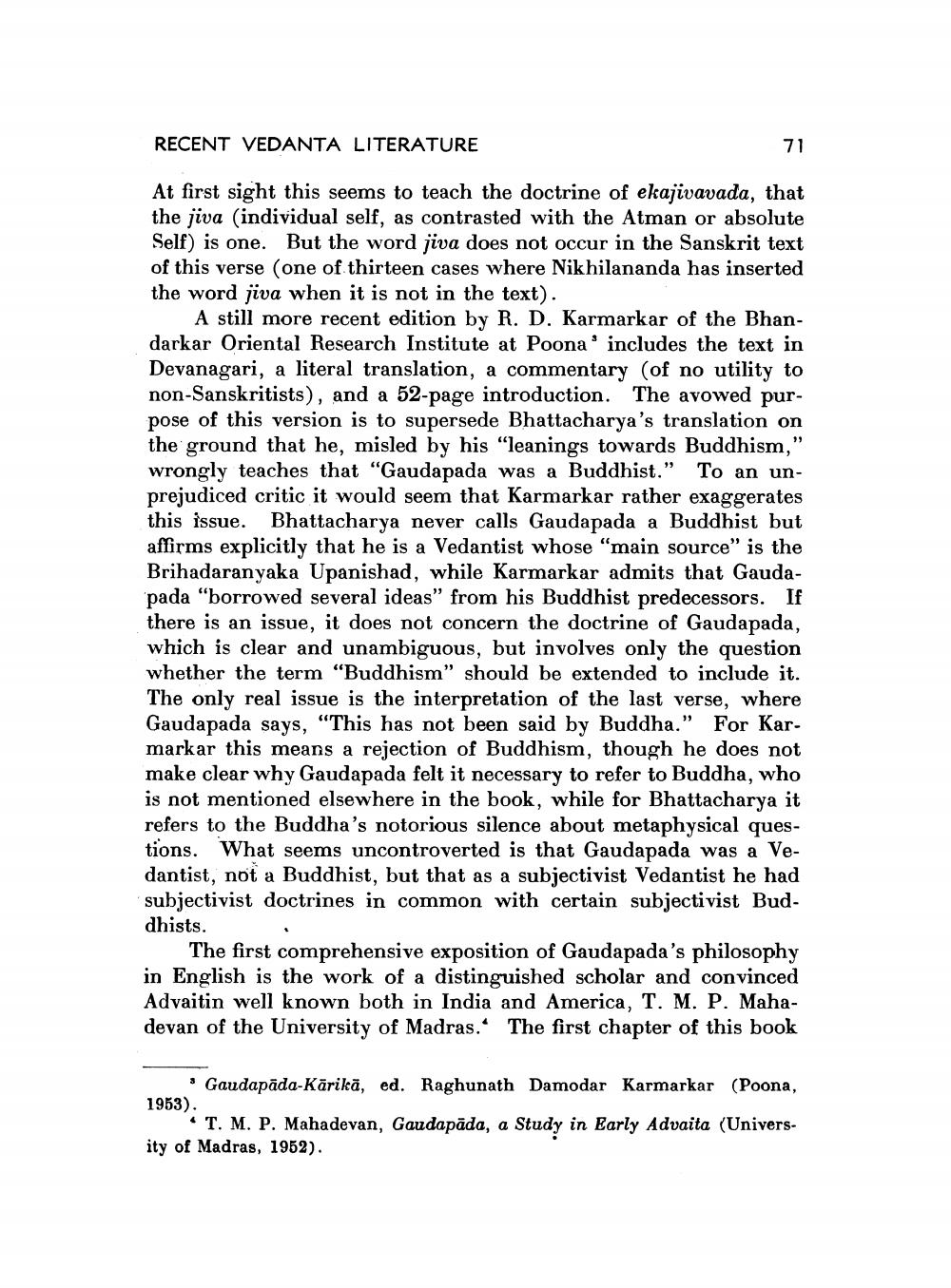Book Title: Recent Vedanta Literature Author(s): George Burch Publisher: George Burch View full book textPage 4
________________ RECENT VEDANTA LITERATURE 71 At first sight this seems to teach the doctrine of ekajivavada, that the jiva (individual self, as contrasted with the Atman or absolute Self) is one. But the word jiva does not occur in the Sanskrit text of this verse (one of thirteen cases where Nikhilananda has inserted the word jiva when it is not in the text). A still more recent edition by R. D. Karmarkar of the Bhandarkar Oriental Research Institute at Poona' includes the text in Devanagari, a literal translation, a commentary (of no utility to non-Sanskritists), and a 52-page introduction. The avowed purpose of this version is to supersede Bhattacharya's translation on the ground that he, misled by his "leanings towards Buddhism," wrongly teaches that "Gauda pada was a Buddhist." To an unprejudiced critic it would seem that Karmarkar rather exaggerates this issue. Bhattacharya never calls Gaudapada a Buddhist but affirms explicitly that he is a Vedantist whose "main source" is the Brihadaranyaka Upanishad, while Karmarkar admits that Gaudapada "borrowed several ideas" from his Buddhist predecessors. If there is an issue, it does not concern the doctrine of Gauda pada, which is clear and unambiguous, but involves only the question whether the term “Buddhism” should be extended to include it. The only real issue is the interpretation of the last verse, where Gauda pada says, "This has not been said by Buddha." For Karmarkar this means a rejection of Buddhism, though he does not make clear why Gaudapada felt it necessary to refer to Buddha, who is not mentioned elsewhere in the book, while for Bhattacharya it refers to the Buddha's notorious silence about metaphysical questions. What seems uncontroverted is that Gaudapada was a Vedantist, not a Buddhist, but that as a subjectivist Vedantist he had subjectivist doctrines in common with certain subjectivist Buddhists. The first comprehensive exposition of Gaudapada's philosophy in English is the work of a distinguished scholar and convinced Advaitin well known both in India and America, T. M. P. Mahadevan of the University of Madras. The first chapter of this book Gaudapāda-Kārikā, ed. Raghunath Damodar Karmarkar (Poona, 1953). * T. M. P. Mahadevan, Gaudapāda, a Study in Early Advaita (University of Madras, 1952).Page Navigation
1 2 3 4 5 6 7 8 9 10 11 12 13 14 15 16 17 18 19 20 21 22 23 24 25 26 27 28 29
